Brain tumour patients and their families from across Scotland gathered on Tuesday 28 January to mark the opening of a new research centre focused on finding a cure for brain tumours.
This disease kills more people under the age of 40 than any other cancer and affects the lives of thousands if people across Scotland and the rest of the UK each year.
Along with charity staff and researchers, families attended the launch of the new Scottish Brain Tumour Research Centre of Excellence, which is the result of a unique collaboration between two leading cancer charities. 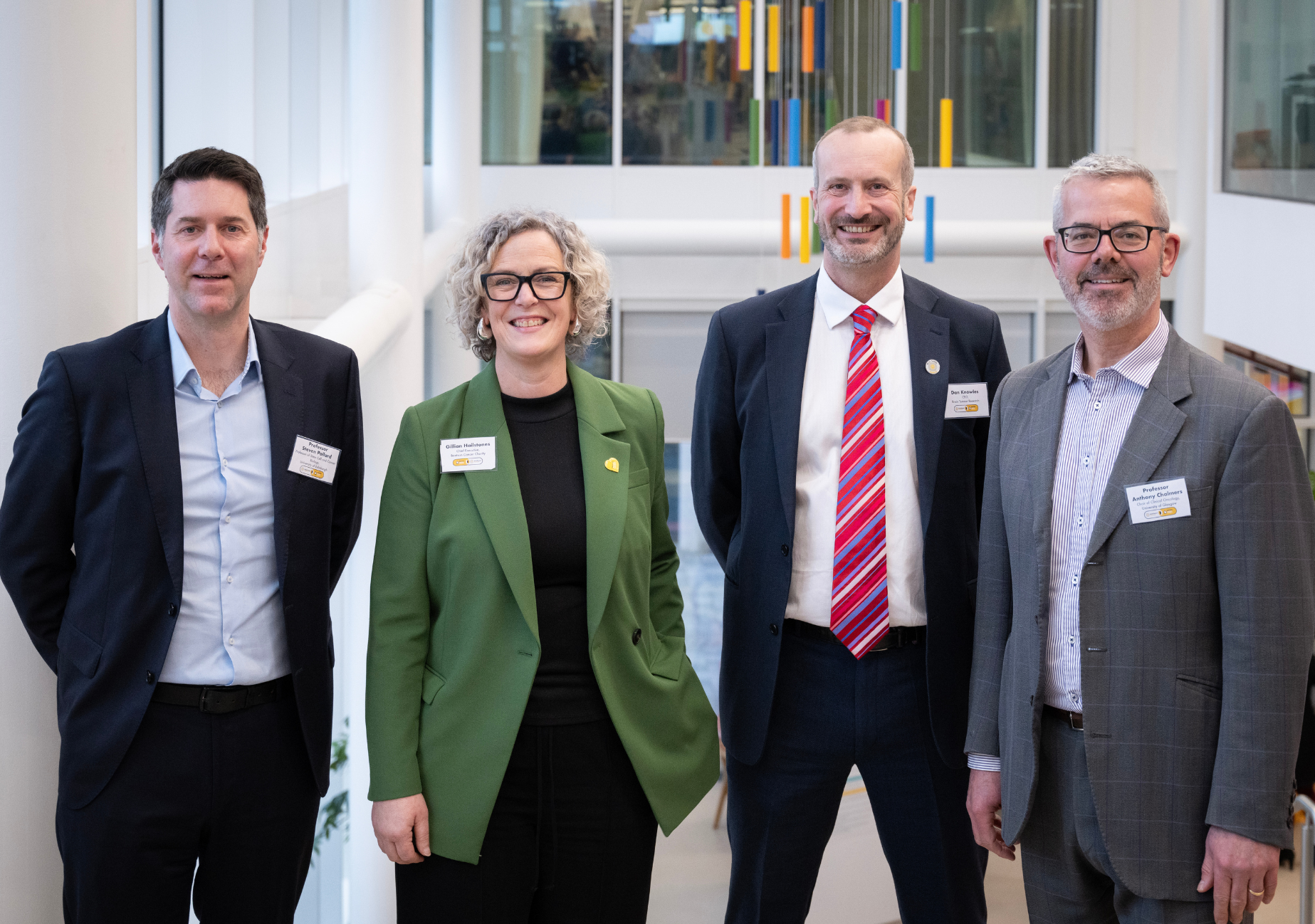
The Centre will see researchers based at both the Universities of Edinburgh and Glasgow working together with the aim of identifying the most promising new treatments for glioblastoma and getting patients into clinical trials.
Beatson Cancer Charity and Brain Tumour Research are investing £2.4 million in the Centre over the next five years.
The complexity, diversity and rapid growth of glioblastoma tumours make it difficult to develop treatments and treatments haven’t changed for 20 years. Researchers in Edinburgh and Glasgow are looking to identify new treatments and progress them into clinical trials for patients. 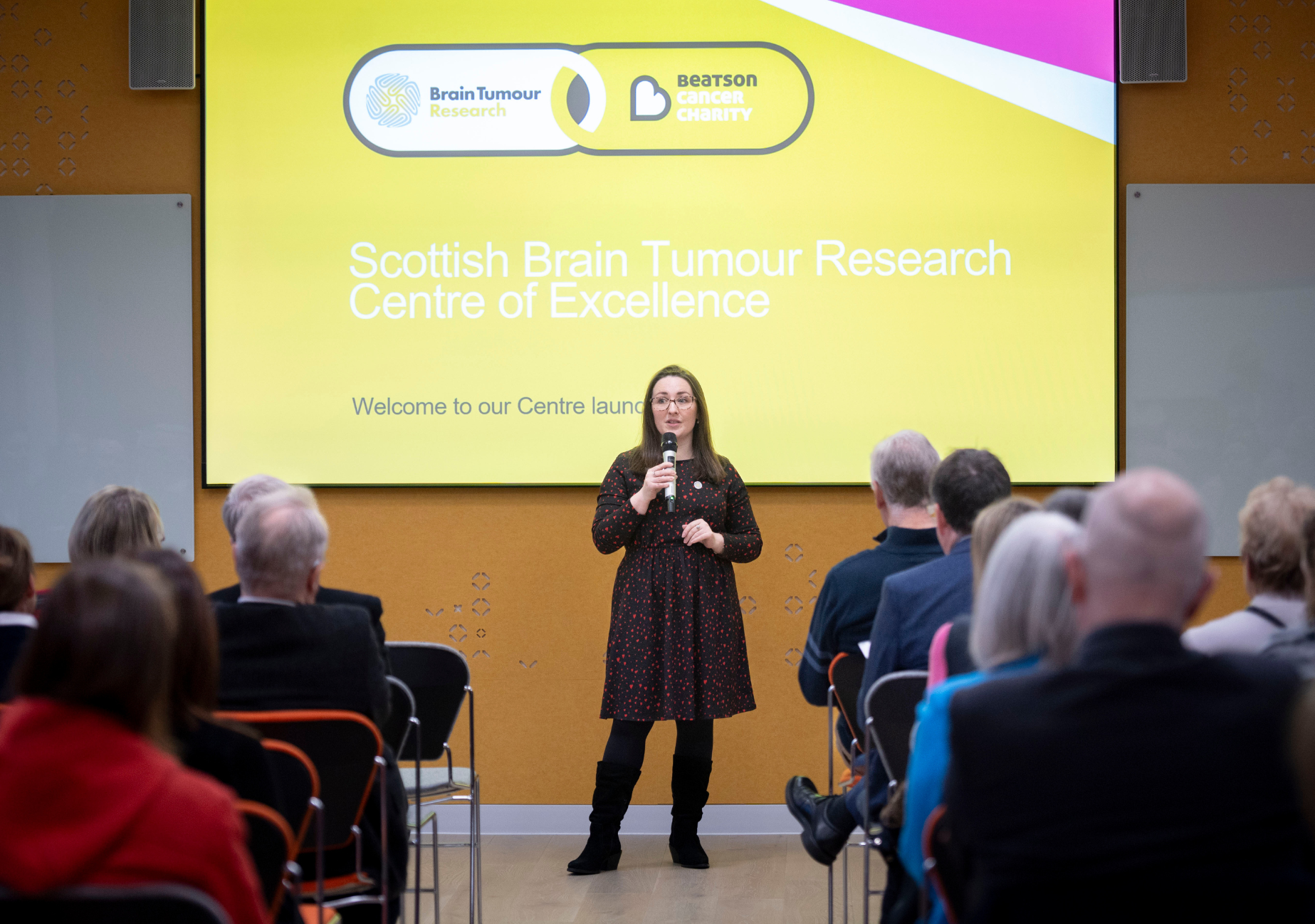
Among those who attended the official opening was Antiques Roadshow expert, Theo Burrell, who became Patron of Brain Tumour Research following her diagnosis with glioblastoma in June 2022.
Theo, 38, from East Lothian, has just started the second round of a 12-month temozolomide chemotherapy programme following a regrowth of her tumour. She said: “My current situation is scary, and I’m daunted by what lies ahead, but this new Centre is giving myself and other people affected by brain tumours some tangible hope.
“Through my diagnosis and my role as Patron of Brain Tumour Research I speak to brain tumour patients every day; two people close to me have recently died from the disease and it’s heartbreaking. I am hopeful that game changing research here will lead to clinical trials for glioblastoma patients in Scotland like me.”
The location of the new Centre - close to the Royal Infirmary - has a very personal meaning for Theo and her family. Her mum worked as a sister there for 18 years, and her son Jonah was born there by emergency caesarean. Mother and baby both had sepsis but were brought back to full health by the “amazing staff”. Just a few months later, Theo went to A&E and had a CT scan which she says saved her life because it revealed the glioblastoma on her brain.
Scientists at the Scottish Research Centre are seeking and developing new drugs that can target and kill the cancer-causing cells that drive the growth of glioblastoma, to create more effective treatments. They are particularly looking for new drugs that can cross the blood brain barrier, a natural protective membrane that prevents harmful substances from entering the brain, including many medicines. Furthermore, to strengthen the reliability of drug testing results and increase the likelihood of a new treatment succeeding in human trials - an area where most new discoveries fail - the Centre will also be working to refine its world-class drug testing platform to better replicate real-world glioblastoma tumours. 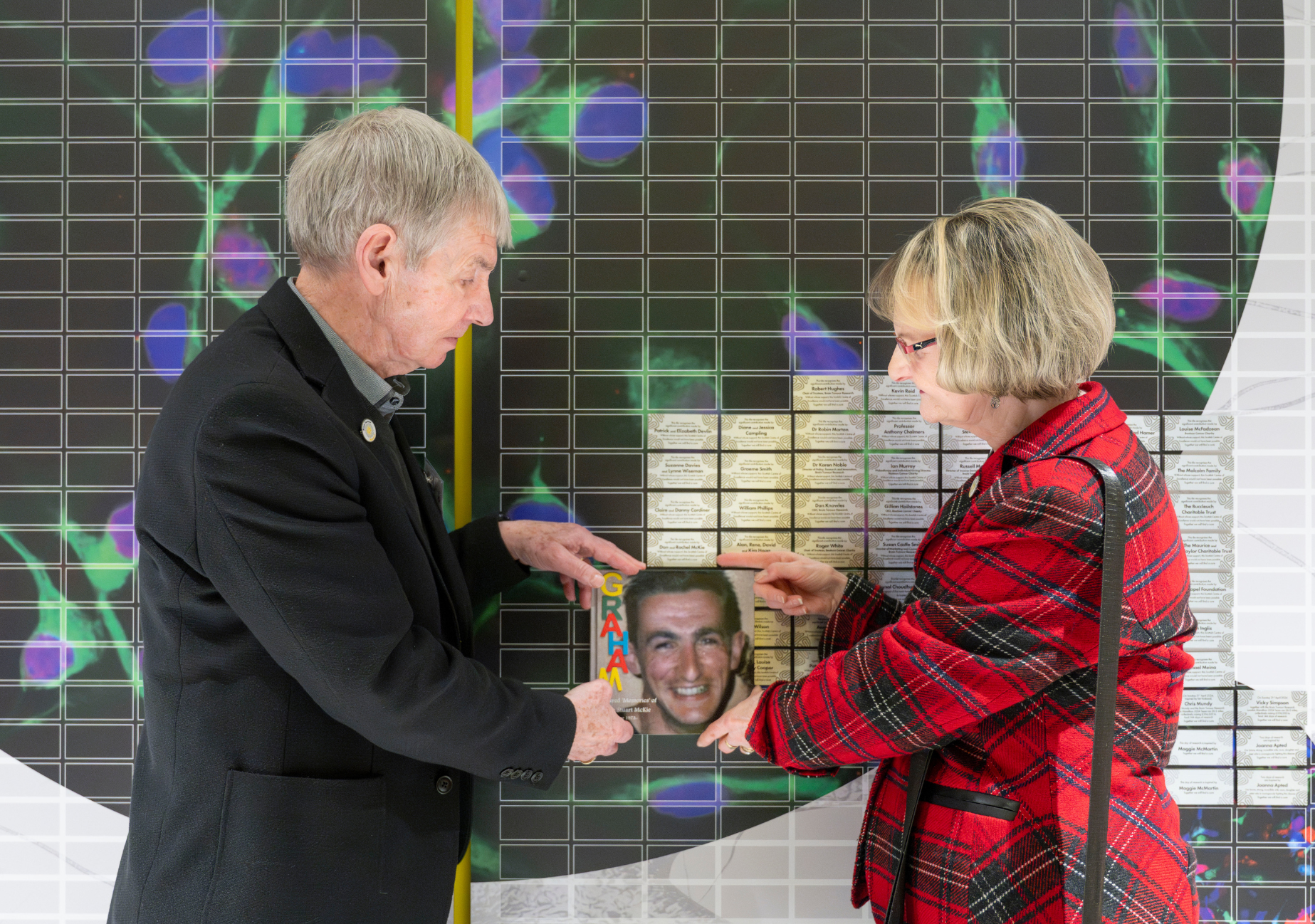
Don and Rachel McKie, from Milngavie, East Dunbartonshire, and their family have raised £50,000 in memory of their son Graham who died when he was just 32 in August 2006.
Rachel said: “This new Centre will be life-changing for so many families. It’s a chance for Scotland to lead the way in tackling glioblastoma and supporting those affected by it. Knowing it’s dedicated to researching the type of tumour Graham had makes it all the more meaningful. It’s a fantastic opportunity for people in Scotland to make a difference. As a country, we’re so caring and compassionate, especially when it comes to supporting those affected by cancer. For us, fundraising and raising awareness have been a huge part of our healing process; it symbolises his legacy and the promise we made to do something meaningful in his memory. His story inspires not only us but also our children and grandchildren to keep raising awareness and supporting this vital cause.”
More than 1,000 people in Scotland are diagnosed with a brain tumour every year. Of those, 433 people are diagnosed with a high-grade brain tumour. 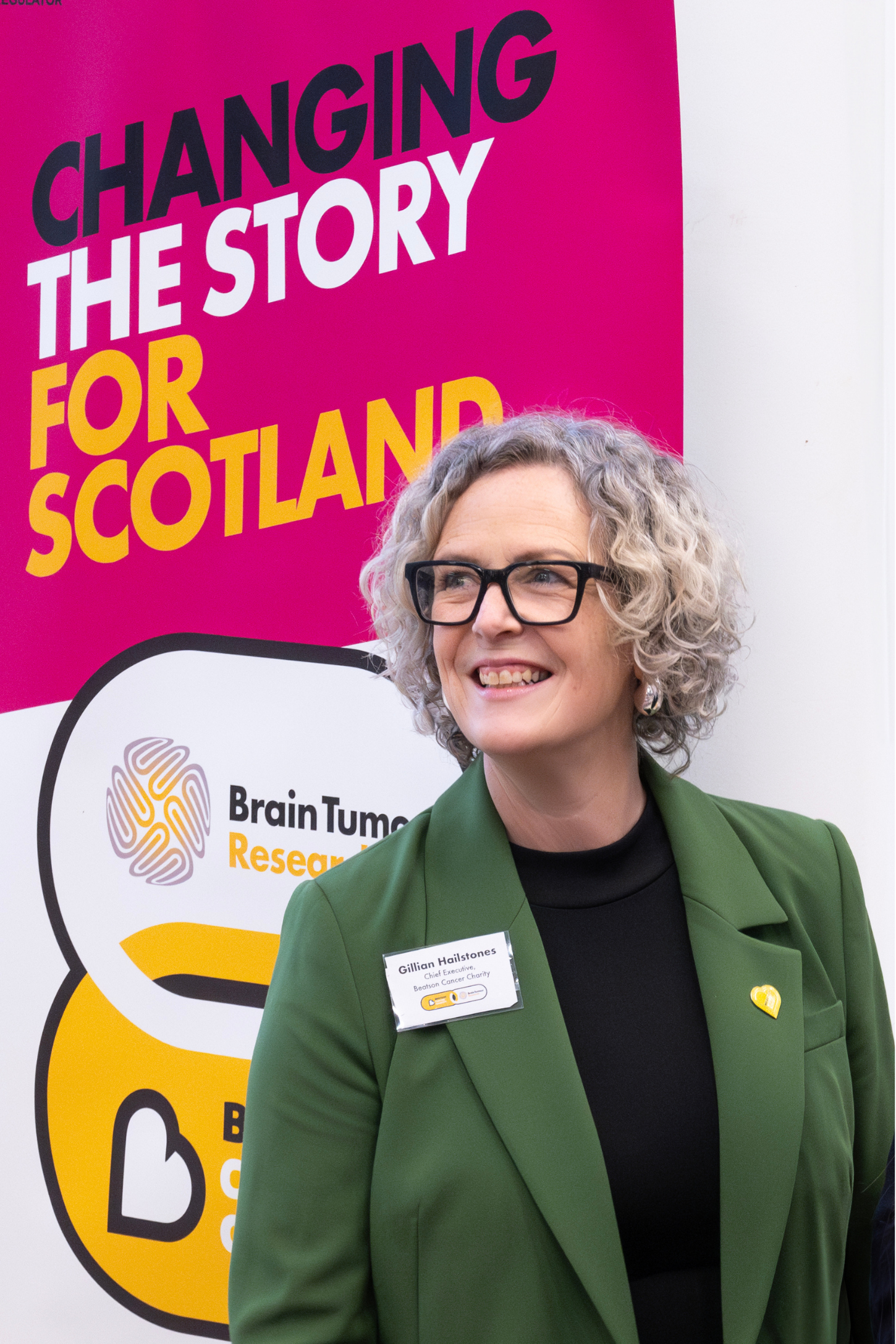
Gillian Hailstones, CEO of Beatson Cancer Charity, said: “It is a truly exciting milestone for brain tumour research in Scotland, and one that holds immense potential to advance understanding and develop new treatment options for glioblastoma. Beatson Cancer Charity is proud to be working in partnership with Brain Tumour Research and the Universities of Edinburgh and Glasgow, to make this ambition a reality. This new Centre brings together exceptional expertise from Edinburgh and Glasgow, and we are confident it will lead to significant progress in tackling the complexities of brain tumours and developing innovative treatments in the years ahead.
“We hear firsthand from the patients and families we support, how devasting this disease can be and the significant and lasting impact that it has on families. The generosity of our supporters and donors demonstrates the level of commitment there is across Scotland to change the future for those affected by brain tumours. Thanks to their generosity today’s centre opening marks the start of that change.” 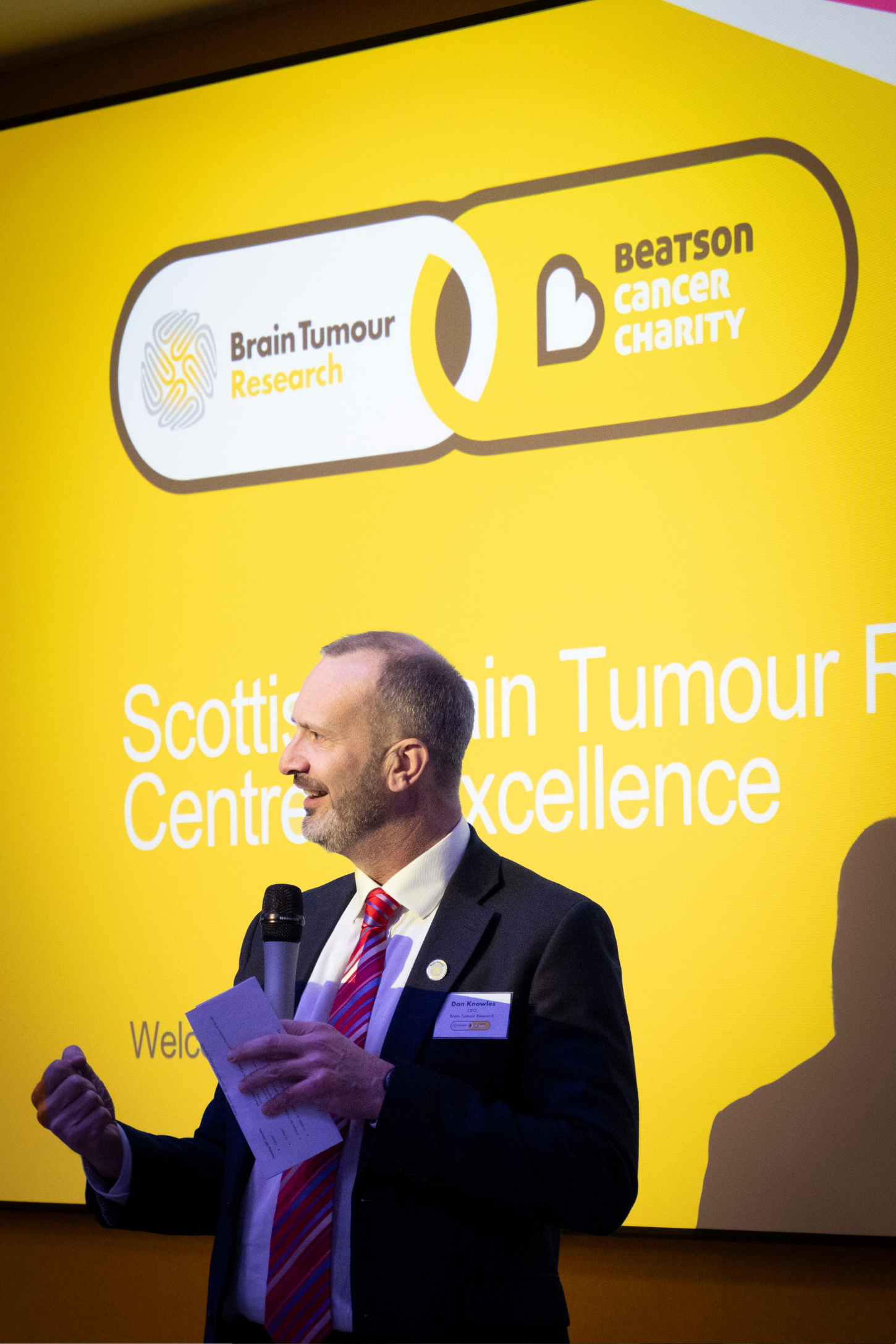
Dan Knowles, Chief Executive of Brain Tumour Research, said: “It is hugely significant for the brain tumour community in Scotland who, thanks to their generous support, have helped make the Scottish Brain Tumour Research Centre of Excellence a reality. Glioblastoma patients desperately need new, improved treatments, so I welcome the prospect of more clinical trials being created for patients which will lead to better and kinder treatments and, ultimately, a cure.
“The Scottish Centre is bridging the gap between the discovery of potential new treatments for glioblastoma and getting these treatments to patients. Their multidisciplinary approach for drug discovery and testing will provide the preclinical data needed to attract the investment that funds clinical trials. It will increase the number of trials available for glioblastoma patients in Scotland and beyond.
“The Centre represents a significant investment in Scotland and complements our other Centres of Excellence at the University of Plymouth, Imperial College London, Queen Mary University of London, and the Institute of Cancer Research.” 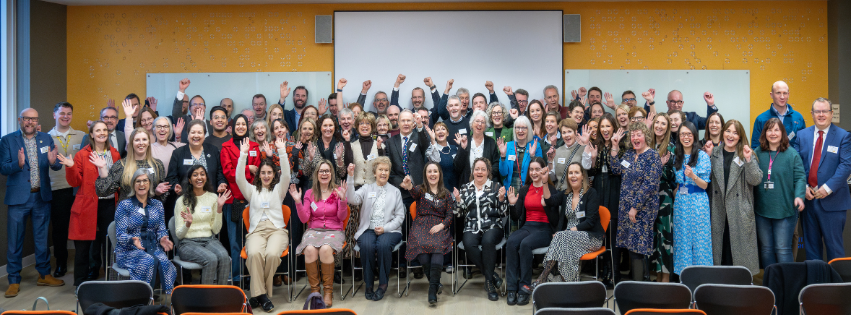





 Donate
Donate